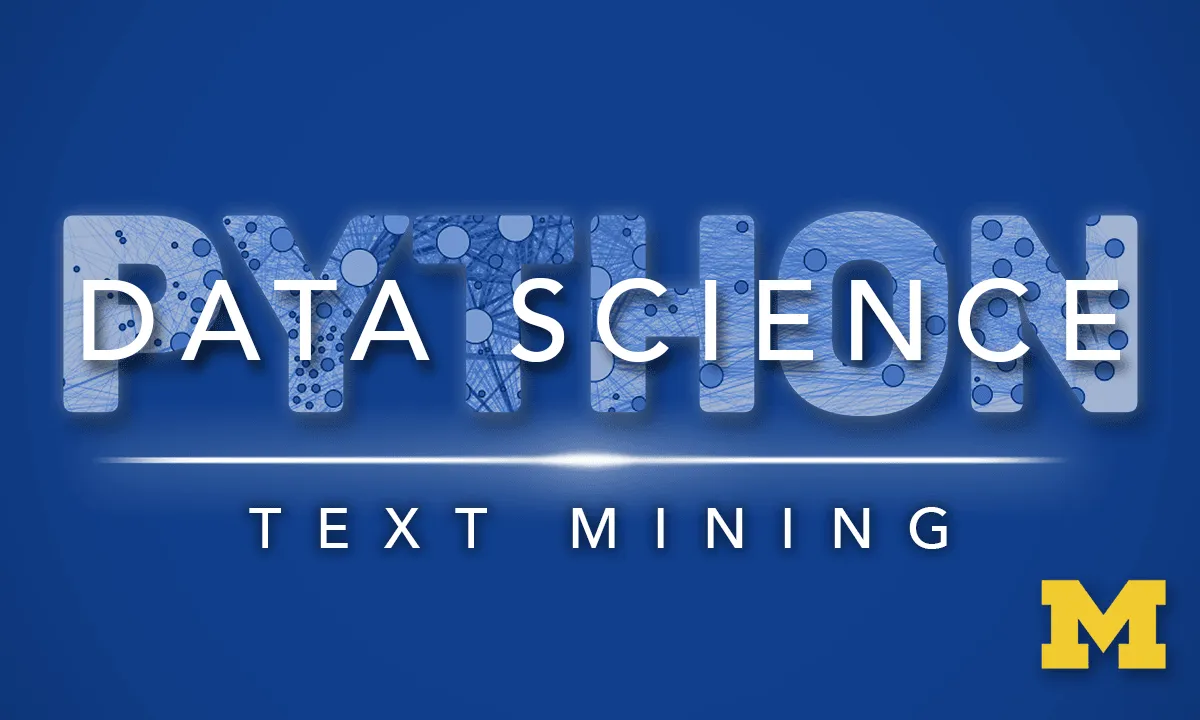
Clinical Natural Language Processing 
This Clinical Natural Language Processing course teaches the fundamentals of NLP, including basic linguistic principals, writing regular expressions, and handling text data in R. You will learn practical techniques for text processing to extract information from clinical notes, and apply your skills to a real-world project to identify diabetic complications from clinical notes. This course is hosted by our Industry Partner Google Cloud and is a great way to learn the basics of NLP. ▼
ADVERTISEMENT
Course Feature
![]() Cost:
Cost:
Free
![]() Provider:
Provider:
Coursera
![]() Certificate:
Certificate:
Paid Certification
![]() Language:
Language:
English
![]() Start Date:
Start Date:
3rd Jul, 2023
Course Overview
❗The content presented here is sourced directly from Coursera platform. For comprehensive course details, including enrollment information, simply click on the 'Go to class' link on our website.
Updated in [May 25th, 2023]
This Clinical Natural Language Processing course provides students with the fundamentals of NLP. Students will learn the basic linguistic principles underlying NLP, as well as how to write regular expressions and handle text data in R. Additionally, students will gain practical techniques for text processing to be able to extract information from clinical notes. Finally, students will have the opportunity to apply their skills to a real-world practical application, where they will develop text processing algorithms to identify diabetic complications from clinical notes. This work will be completed using a free, online computational environment for data science hosted by our Industry Partner Google Cloud.
[Applications]
After completing this course, students should be able to apply their knowledge of clinical natural language processing to develop algorithms to extract information from clinical notes. They should also be able to use regular expressions and text processing techniques to identify patterns in text data. Additionally, students should be able to use the Google Cloud platform to develop and deploy their algorithms.
[Career Paths]
1. Clinical Natural Language Processing Engineer: Clinical Natural Language Processing Engineers are responsible for developing and implementing NLP algorithms to extract information from clinical notes. They must have a strong understanding of the fundamentals of NLP, as well as the ability to write regular expressions and handle text data in R. As the use of NLP in healthcare continues to grow, Clinical Natural Language Processing Engineers will be in high demand.
2. Clinical Natural Language Processing Researcher: Clinical Natural Language Processing Researchers are responsible for researching and developing new NLP algorithms to extract information from clinical notes. They must have a strong understanding of the fundamentals of NLP, as well as the ability to write regular expressions and handle text data in R. As the use of NLP in healthcare continues to grow, Clinical Natural Language Processing Researchers will be in high demand.
3. Clinical Natural Language Processing Analyst: Clinical Natural Language Processing Analysts are responsible for analyzing the results of NLP algorithms to extract information from clinical notes. They must have a strong understanding of the fundamentals of NLP, as well as the ability to write regular expressions and handle text data in R. As the use of NLP in healthcare continues to grow, Clinical Natural Language Processing Analysts will be in high demand.
4. Clinical Natural Language Processing Consultant: Clinical Natural Language Processing Consultants are responsible for providing advice and guidance to healthcare organizations on how to best use NLP algorithms to extract information from clinical notes. They must have a strong understanding of the fundamentals of NLP, as well as the ability to write regular expressions and handle text data in R. As the use of NLP in healthcare continues to grow, Clinical Natural Language Processing Consultants will be in high demand.
[Education Paths]
1. Bachelor of Science in Computer Science: A Bachelor of Science in Computer Science is a great way to gain the skills necessary to pursue a career in clinical natural language processing. This degree program will provide students with a comprehensive understanding of computer science fundamentals, including programming, data structures, algorithms, and software engineering. Additionally, students will learn about artificial intelligence, machine learning, and natural language processing. As the field of clinical natural language processing continues to grow, this degree will become increasingly important for those looking to pursue a career in this field.
2. Master of Science in Artificial Intelligence: A Master of Science in Artificial Intelligence is a great way to gain the skills necessary to pursue a career in clinical natural language processing. This degree program will provide students with a comprehensive understanding of artificial intelligence, including machine learning, natural language processing, and computer vision. Additionally, students will learn about deep learning, reinforcement learning, and robotics. As the field of clinical natural language processing continues to grow, this degree will become increasingly important for those looking to pursue a career in this field.
3. Doctor of Philosophy in Natural Language Processing: A Doctor of Philosophy in Natural Language Processing is a great way to gain the skills necessary to pursue a career in clinical natural language processing. This degree program will provide students with a comprehensive understanding of natural language processing, including text mining, information extraction, and sentiment analysis. Additionally, students will learn about natural language understanding, dialogue systems, and machine translation. As the field of clinical natural language processing continues to grow, this degree will become increasingly important for those looking to pursue a career in this field.
4. Master of Science in Data Science: A Master of Science in Data Science is a great way to gain the skills necessary to pursue a career in clinical natural language processing. This degree program will provide students with a comprehensive understanding of data science, including data mining, machine learning, and predictive analytics. Additionally, students will learn about natural language processing, text mining, and data visualization. As the field of clinical natural language processing continues to grow, this degree will become increasingly important for those looking to pursue a career in this field.
Course Syllabus
Introduction: Clinical Natural Language Processing
This module covers the basics of text mining, text processing, and natural language processing. It also provides a information on the linguistic foundations that underly NLP tools.Tools: Regular Expressions
This module introduces regular expressions, the method of text processing, and how to work with text data in R. Mastery is demonstrated through a programming assignment with applied questions.Techniques: Note Sections
This module discusses how the section of a clinical note can affect the meaning of text in the section. A programming assignment provides hands on practice with how to apply this knowledge to process clinical text.Techniques: Keyword Windows
This module discusses how you can build windows of text around keywords of interest to understand the context and meaning of how the keyword is being used. A programming assignment provides hands on practice with how to apply this technique to process clinical text.Practical Application: Identifying Patients with Diabetic Complications
Apply the tools and techniques that you have learned in the course to a real-world example!Pros & Cons

Interesting and useful material.

Well paced and thought out.

Opens to other technics.

Evaluation process is frustrating.

Missing data for final quiz.

Lack of educational material.
Course Provider

Provider Coursera's Stats at AZClass
Discussion and Reviews
0.0 (Based on 0 reviews)
Explore Similar Online Courses

Learn whats new in PHP 7

Magazine Design: Getting Started

Python for Informatics: Exploring Information

Social Network Analysis

Introduction to Systematic Review and Meta-Analysis

The Analytics Edge

DCO042 - Python For Informatics

Causal Diagrams: Draw Your Assumptions Before Your Conclusions

Whole genome sequencing of bacterial genomes - tools and applications

Text Analytics 2: Visualizing Natural Language Processing

Applied Text Mining in Python

Text Analytics 1: Introduction to Natural Language Processing
 Related Categories
Related Categories
 Popular Providers
Popular Providers
Quiz
 Submitted Sucessfully
Submitted Sucessfully
1. What is the main focus of this course?
2. What will you learn in this course?
3. What will you use to develop text processing algorithms to identify diabetic complications from clinical notes?


Start your review of Clinical Natural Language Processing